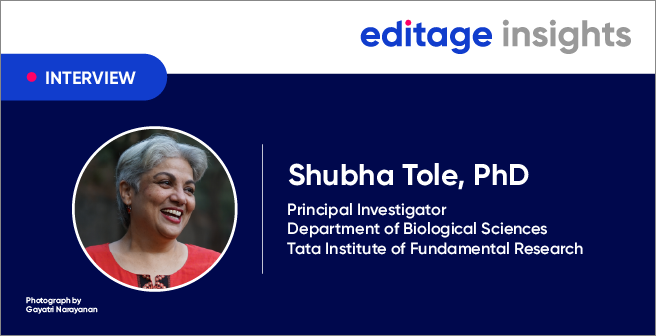When one door closes, opportunity comes knocking on another

As one door closes, another one opens
And so the saying goes… as one door closes, another one opens. This is certainly true for me at the moment in academic research. Albeit slightly different with a number of doors slightly ajar…
I never actually thought the day would come that I’d need to take down the geckos (thanks Promega!), soft penguin, horse, and many other toys that I have accumulated over the years, from my shelf and wall; to clear my desk, empty the drawers, and remove the carrier bags, teapot, cafetière and other worldly possessions at the end of my time, at the School of Dentistry. I genuinely thought I’d be there for the rest of my life.
Naive? Maybe. But most definitely not ungrateful.
I had a great journey through my PhD on the whole, and I most definitely earned my PhD in my viva! More on that in a different post soon. But one thing I am proud of is taking opportunities whenever they were presented to me. I think it’s really important, as a junior scientist at least, to do what you can to get yourself out there in the field; go to conferences, meetings, networking events, seminars, etc; and probably even more importantly, talk to people! Professors, senior scientists, and those that we hold in the highest regard are not gods, they are not untouchable. They are people. They have been through the same academic journey that we have gone or are going through at the moment. They are approachable, they will talk to you, and to be honest, they will probably be pretty flattered that you want to discuss something with them!
Academic cliques. A bit like biofilms; apparently impenetrable from the outside, but go and speak to them and you’ll find the channels in!
I’m involved in oral microbiology, and it’s a pretty niche field compared to some other fields like cancer research. A lot of ‘academics’ already have clusters or groups that on the outside seem impenetrable. Ironically, a bit like a biofilm, which my PhD research has been focused on! I know it isn’t easy for a lot of people just to get the courage to up and move toward people with the confidence to actually speak to them, but that’s what I did, and for what it’s worth, I’ll tell you that it’s probably one of the best things I ever did during my PhD. Just talking to people really opens them up to being more receptive to you, to your PI if they don’t already know them that well, and to others in their cliques too. This way, you get to know others, and then you get to know who they know, and before you know it, you’re getting around hundreds of different people, directly or indirectly! Social media is amazing for this; go and follow people on Twitter or Instagram. Then, if they’re at a conference you are attending, send them a tweet or a message and ask if they fancy a quick chat. This opens doors, which will benefit you no end in the future. This is exactly what I did.
So, having finished my PhD in late 2017/early 2018 (viva Dec 2017, corrections March 2018), and completing a couple of short postdoctoral positions since then, I have just been awarded a 12-month Wellcome Trust Institutional Strategic Support Fund (ISSF) consolidator grant. This grant is intended to enable me to continue my PhD research within the university, but as a transition toward independence from my PhD supervisors. This is a fantastic opportunity to build on my previous work, and move in a slightly different direction, with a completely new set of supervisors/collaborators to work with. I have teamed up with Professor Julian Marchesi (Professor of gut microbiome at Cardiff University and Professor of digestive health at Imperial College London).
I cannot begin to tell you how ecstatic I am for this grant, and to be able to continue the PhD work that I’ve been doing for the past 4 or so years is an awesome opportunity that most newly qualified postdocs don’t get. It’s familiar territory, and hopefully I’ll be able to make some significant progress in a relatively short period! I’m aiming for an extra 2 papers from this, which will help support future fellowship applications, or the postdoctoral research positions elsewhere (watch this space…!) that might be on the agenda sometime. As I’ve made an effort to talk to some influential figures in my field over the years. I’m fortunate enough to have the wonderful Dr Angela Nobbs as a collaborator on the project, and I’m hoping to spend a bit of time with her to look more into the molecular mechanisms of bacterial modulation of C. albicans virulence! I’ve known Angela for a number of years now, and I’m particularly excited to work with her, with my knowledge of her expertise in bacteria-Candida interactions and molecular biology! Not only this, but she was my external examiner for my PhD viva, and despite knowing ALL of my weaknesses, still feels I am good enough to work with!
So it’s all change at the School of Dentistry; Josh has a job in Bristol as a clinician for a year (which he’s very much looking forward to!), and I’m leaving for the School of Biosciences, leaving Katrina on her own in the DW group until the arrival of the new PhD student who will be filling my boots, and building on my previous PhD work too! I’m looking forward to being able to work with her, spending some time back in Dental, and having her work with me in Biosciences too. And there’s scope for her to come and spend some time in Angela’s lab when I head over sometime in the new year too!
Exciting times ahead!! And plenty more to come I’m very sure! Oh, and what I didn’t mention is that there is a lectureship position at UCL that I have been made aware of, and will be looking into in a bit more depth. ‘Talking to people’ has landed me in some great positions with regards to more grants to write and potential funding/collaborative opportunities! Cannot wait!!
Dr. Daniel Morse (@danieljmorse) is a Postdoctoral Research Associate at Cardiff University. This story was published on August 7, 2018, on Dr. Morse’s blog, I’m A Scientist (available here), and has been republished here with his permission.




